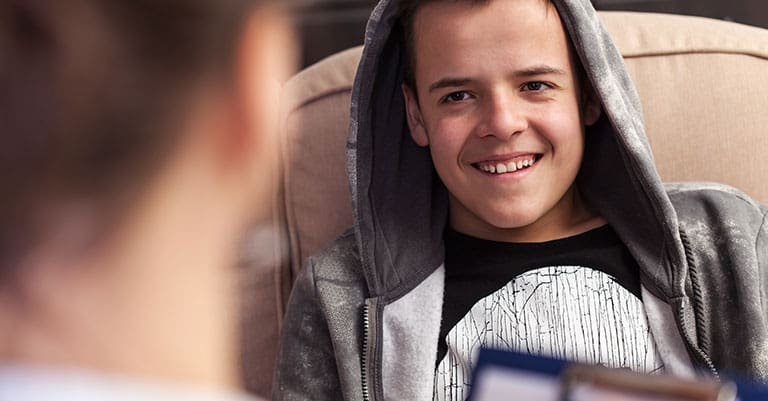Pediatric behavioral health services offered in an inpatient hospital setting permits caregivers to treat a child’s medical needs while also addressing behavioral challenges. Nexus Children’s Hospital is now one of the only facilities in the Houston area that successfully treats patients with serious behavioral issues, including aggression, that have underlying diagnoses such as autism, cognitive impairment, acquired and traumatic brain injury, and Prader-Willi Syndrome (PWS).
The new behavioral health program under the leadership of Dr. Monica LaBrie, PhD, BCBA, LBA, enables the hospital to help children and young adults ages four to twenty-one who have medical conditions that would prevent admission to traditional inpatient behavioral programs.
“Many times, children with behavior issues do not find success in traditional inpatient or outpatient settings,” said Dr. LaBrie. “When these children arrive at Nexus Children’s Hospital, their parents don’t expect them to be successful. Because I and other trained staff members can decrease and manage their behaviors, they are able to progress and receive proper care.”
Dr. LaBrie went on to explain, “We treat kids that need medical services, but who also have behavioral challenges that interfere with them going to a typical hospital. Our staff is trained to handle kids with severe behavior, like physical aggression, self-harm, self-injury, poor compliance with medical care or diet, and lack of coping skills.”
The behavioral health services team takes a multidisciplinary approach. The team is made up of a pediatrician, pediatric nurse practitioner, neuropsychiatrist, behavioral nurse practitioner, behavior analyst, and neuropsychologist. In addition to the traditional, comprehensive rehabilitation including physical, occupational, speech, and recreational therapy, children in the program may also have a formal behavior plan tailored to their unique needs.
“I first complete an assessment to observe a child’s behavioral issues. I’ll also interview those who have witnessed the behaviors to determine the function of the behavior,” said Dr. LaBrie. “From there, I’ll develop a plan, which includes defining what the behaviors look like, information on how to prevent the behaviors, and responses strategies, so that those around the child know how to appropriately respond.”
The program is different than what is offered at most hospitals and residential treatment facilities. At Nexus Children’s Hospital, children follow a structured daily schedule that includes individual therapy and rehabilitation, but also scheduled group activities. Dr. LaBrie explained, “Sticking to a routine helps us promote pro-social behaviors, like interacting with peers and participating in activities.”
“Because we’re able to address all handicapping issues in one place, children have both their medical and psychological needs addressed,” said Dr. LaBrie. “We can treat every issue the child has at the level of treatment and intervention they need.”
Nexus’ program is also unique in that most inpatient hospital settings don’t have a behavior analyst on staff. While other facilities may have behavior plans for patients, Nexus is able to provide a formal strategy grounded in the science of applied behavior analysis.
“We are definitely offering a unique program,” said Dr. LaBrie. “I’ve worked in multiple settings and have never seen another inpatient hospital even consider hiring a behavior analyst. But even in terms of what we can do with rehabilitation for severe traumatic brain injury and how we are the only inpatient program for children with Prader-Willi Syndrome, there’s a lot of uniqueness to what we’re doing.”
Dr. LaBrie and the entire behavioral health services team are undoubtedly helping children with all kinds of behavioral diagnoses have a more productive inpatient hospital stay.
